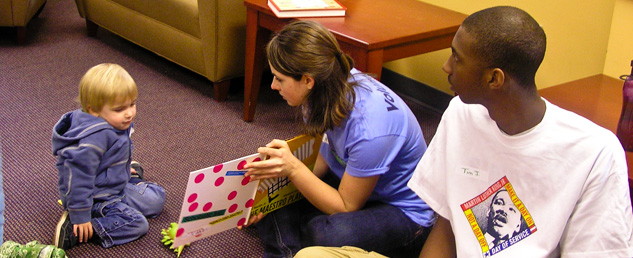 We are fortunate enough this week to feature a compelling piece originally published in the October 5, 2011 issue of The Chronicle of Higher Education. James B. Dworkin, Chancellor of Purdue University-North Central, and Maureen Curly, President of Campus Compact, teamed up to bring us this compelling piece about the integral value of engagement in the context of higher education. Enjoy!
We are fortunate enough this week to feature a compelling piece originally published in the October 5, 2011 issue of The Chronicle of Higher Education. James B. Dworkin, Chancellor of Purdue University-North Central, and Maureen Curly, President of Campus Compact, teamed up to bring us this compelling piece about the integral value of engagement in the context of higher education. Enjoy!
In her article (Syracuse’s Slide, The Chronicle, Oct. 2), Robin Wilson presents one view of the impact of community engagement on an institution. Campus Compact sees the value of engagement in a broader context.
The public purpose of colleges and universities – both public and private – is deeply rooted in the history and founding of higher education in the United States, and has been instrumental in the establishment of the academy as a key institution which promotes democracy in our society. The current growth in adapting institutional practices of engagement and community partnership has been steady in recent years and has profoundly reshaped the landscape of higher education. Campus Compact believes the new landscape should be celebrated and encouraged.
A commitment to the public mission of higher education does not come at the expense of values upon which the academy is built – for example, academic freedom and rigorous scholarship. We acknowledge that there are diverse methods and pedagogies which faculty follow in their research and teaching practice, and we believe a balance of practices throughout the academy enriches overall rigor and effectiveness. Campus Compact argues, however, that there is tremendous value in the new knowledge that is produced by those faculty who choose to be engaged. There are examples of rigorous and meaningful service- learning and engaged research projects from all disciplines – anthropology to zoology – presented at national and international conferences, published in peer-review journals, and included in promotion and tenure files. Beyond the academy, this explosion of engaged research has helped communities recover from economic depression, tackle underlying issues of poverty and violence, and benefit from scientific knowledge regarding environmental destruction and reconstruction. These research agendas are fundamental to ensuring that higher education remains relevant, and they demand rigorous testing, critical thinking and the types of analysis that we expect from all faculty.
The Compact encourages institutions of higher education not to be caught thinking that they are removed from their communities. We all have a responsibility to develop healthy communities; and colleges and universities – which serve as anchor institutions in their communities – provide economic, cultural and social capital that can be harnessed for development. Importantly, this is not a one-way street – universities and colleges also gain from these connections through research partnerships, access to living laboratories, and the deepened understanding that comes from including community voices. Students are eager for and benefit from exploring how their studies relate to realities outside the classroom; funders want proof that research will be inclusive and engaged. Research universities have a responsibility to help us better understand our world and that understanding is enhanced through engagement with communities. It is apparent that the academy should be structurally, financially, and culturally geared towards promoting the public good.
As the only network dedicated to the promotion of civic engagement in higher education, Campus Compact’s organizational growth reflects presidential and institutional commitments to community engagement and engaged research. For the past six years, the Compact has convened TRUCEN (The Research University Civic Engagement Network), a group of representatives from 35 very high research universities who are committed to advancingengaged scholarship in higher education. The respected leadership of these institutions reflects new and exciting approaches to the integration of engaged scholarship in research, publication and reward systems. Campus Compact applauds all of our 1100 member presidents, including Dr. Nancy Cantor at Syracuse University, for their leadership and dedication to highlighting the role of community engagement on their campuses.





